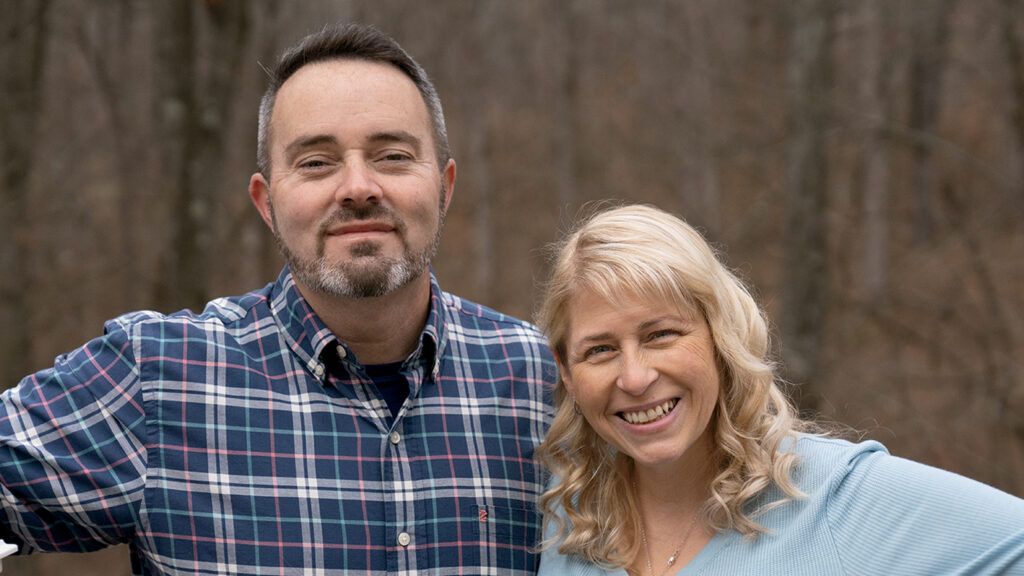“Is it going to be just you and me again tonight, Mom?”
My 10-year-old son, Nathan, watched me set a pan of lasagna on our kitchen table—a pan big enough to feed our family of seven.
“Yep, you and me, buddy,” I said, trying to keep the disappointment out of my voice.
It was 7 P.M. Nathan’s siblings, all teenagers or older, were either working or out with friends.
My husband, Eric, was still at the office. As usual.
“Is Dad ever going to eat with us?” Nathan asked.
“Sure,” I said, forcing myself to sound upbeat.
I felt the opposite. I was way beyond disappointed. It was all I could do to conceal my anger about Eric’s long work hours.
I got it that Nathan’s siblings were growing up. They were in and out, like most teenagers. They always let me know when they would miss dinner.
Eric was a wonderful husband: kind, patient, faithful. He was a fun, devoted dad. He was perfect really.
Except for this. Ever since we’d married, Eric had worked crazy long hours. He and his brother had started a company that made components for jet engines. The company now employed 80 people, and Eric felt responsible for every single one of them.
I’d known Eric worked hard when we married. He was even late for our very first date. “I’m so sorry,” he said. “I had to finish work on a bid.”
Eric promised the work would ease up when his company got established. Then, after business took off, he promised that things would improve after he and his brother sold the company to a larger manufacturer. The reality? Eric’s hours ratcheted up each time.
This was a second marriage for both of us. We each had two kids, and Nathan was born a year after we married. The kids were young when we married—Eric’s oldest, Austin, was 12—and for a long time I reveled in being a mom.
But as the kids grew older, the numbers at the dinner table each night dwindled. Eric’s absence became impossible to ignore.
I didn’t dare make an issue out of it.
Long work hours had destroyed my parents’ marriage. Dad was a civil engineer who owned his own company. I learned young that the boss works harder than anyone else.
My mom was lonely—and she resented it. A marriage counselor urged her to stop being a doormat, so she complained every time Dad went on a business trip or returned home late. He began staying at the office longer and longer to wait her out.
The constant fighting wore them down. They divorced as soon as my siblings and I were grown. Here’s what I took from their relationship: Bad things happen when wives complain. Better to keep quiet and find ways to cultivate a godly attitude.
My first husband had been emotionally abusive and walked out on me. I met Eric on a Christian dating website. It was as if God had picked him out just for me.
My struggles as a single mom had made me feel like a failure. Eric saw my good qualities and promised to support me in whatever I did. He was a man of prayer. He loved being with the kids. No matter how busy things got at work, he made time for their ball games and school performances.
It was me he didn’t seem to have time for. He was fully present when we were together and never canceled a date night. But we didn’t have many date nights. And Eric was often late for them.
The more my resentment built, the more I broke my vow never to complain. I issued ultimatums about dinner. Gave angry looks when Eric was late. Picked fights. Beneath it all, I worried that his love for me was getting buried by work.
One Sunday afternoon, Nathan and I plopped down on the couch with a bowl of popcorn to watch the Indianapolis Colts game. We’re big football fans in our house.
“Where’s Dad?” Nathan asked.
Eric appeared in the doorway without his Colts jersey. My heart sank.
“I’m sorry, guys,” he said. “Someone really needs my help with a contract.”
He bent to kiss me goodbye, but I turned my face away. I’d never done that before, and it shocked me. Eric pulled back. After an awkward silence, he headed to his car.
I seethed all day. By the time I put Nathan to bed, my anger had faded. All I felt was sad. And scared. Were Eric and I turning into my mom and dad? Should I redouble my efforts to keep quiet and put on a happy face?
But that obviously hadn’t been working. Besides, it didn’t seem right to keep stuffing my feelings inside.
Memories of my parents’ arguments filled my mind. There was Mom, issuing ultimatums just like me. It hadn’t worked for her either.
A thought struck me. What if the problem wasn’t that Mom had refused to put up with Dad’s hours? What if the problem had been how the two of them dealt with it?
What would happen if I leveled with Eric in a more open and non-judgmental way? After all, God had brought Eric into my life for a reason. I needed to trust that our marriage could handle a hard conversation.
Eric looked sheepish when he got home. I marched up to him, and he braced. I put my hand on his shoulder and said, “I don’t want to fight. Do you think we can work together to figure this out?”
I felt him relax. He pulled me into a hug, and we held each other.
We sat at the kitchen table, and I told him everything. All my fears about becoming like my parents and how hard it was to be alone so often.
“Sometimes I worry you don’t love me anymore,” I said.
Eric put his hand on mine. “I’m so sorry, Diane,” he said. “You want to know something? I’m scared too. Part of the reason my first wife and I divorced is that she said I worked too much. But I’ll never forget when my dad got laid off and he had to mow lawns to put dinner on the table. I don’t want that to happen to us—or to my employees. Seems as if I’m always letting someone down.”
We looked at each other. I’d known about Eric’s upbringing, but I hadn’t realized how it had affected him emotionally. His honesty reminded me why I married him. Eric was a good man trying to do the right thing. And he did love me.
“I can’t promise to wave a magic wand and be home by five o’clock every evening,” he said. “Tell me what the hardest thing is for you, and we’ll work on that.”
“Eating dinner alone with Nathan every night,” I said. “I miss you, and he does too.”
“Would you ever consider bringing dinner to the office?” Eric asked. “I know it’s extra work, but then we’d be together.”
“Let’s try it. Once a week. And can I ask for something else?”
“Absolutely.”
“On-time date nights.”
He looked sheepish again. “You’re right. I’m sorry. Here’s an idea. You come pick me up. I can point out the window and say, ‘Gotta go—my wife is here.’ They can’t argue with that!”
We laughed. It felt as if a giant weight had lifted from both of us.
That conversation happened just a few months before the start of the coronavirus pandemic. Suddenly Eric was home every day. When his office reopened, he was reluctant to give up dinners at home. He began coming home at six and bringing work with him. We’d eat together, and then he’d fire up his laptop. Just having him here makes a world of difference.
The biggest difference is our renewed confidence in our marriage. Eric’s work hours were a problem, but the deeper problem was fear.
Fear is the opposite of trust. When we trusted each other—and God—everything improved. Marriage is hard work. But it’s worth it!
For more inspiring stories, subscribe to Guideposts magazine.







